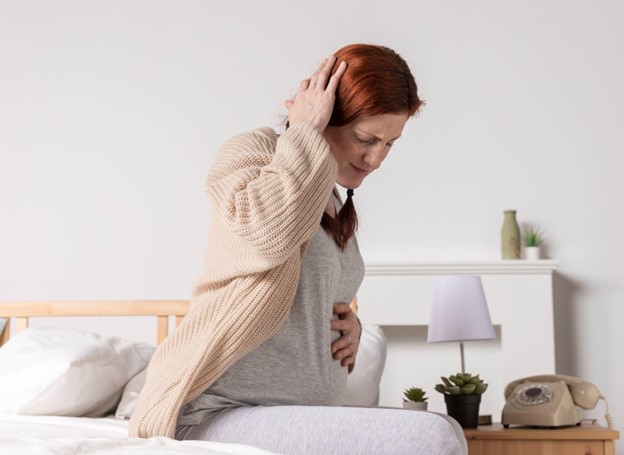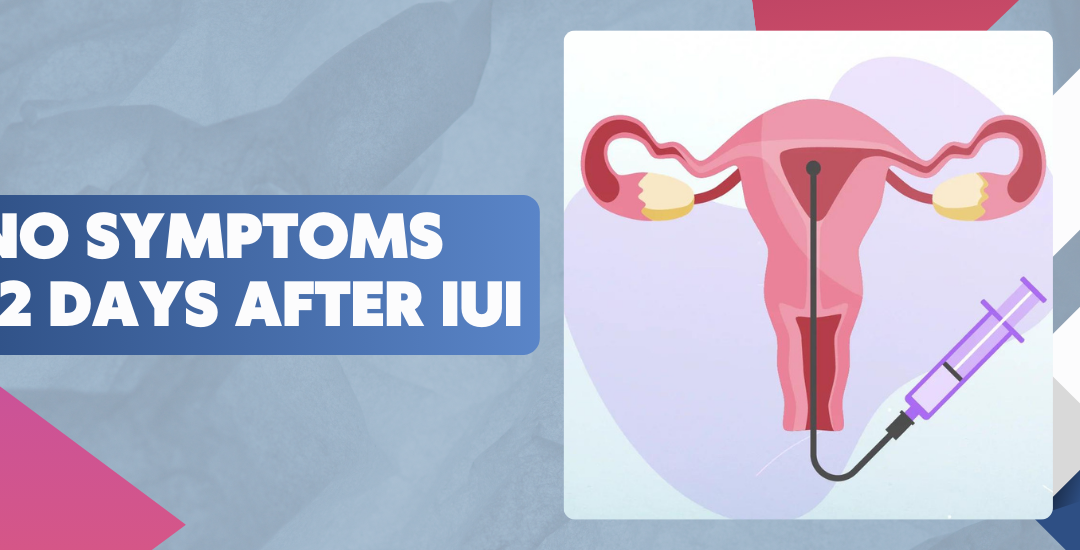If you are having no symptoms 12 days after IUI, It might be helpful for you to understand how IUI works. IUI, or intrauterine insemination, is a fertility treatment where sperm is inserted directly into a woman’s uterus to increase the chances of pregnancy. This procedure helps sperm reach the egg more easily, bypassing any obstacles in the cervix.
Fertility specialists in India often recommend IUI for individuals who find it difficult to conceive naturally. It is also an option for those currently going through medical treatments.
These people may want to preserve their healthy embryos or sperm. Ensuring that their chances of having a baby are not affected by their treatment.
Seeking help with your fertility treatment? Consult an expert.
Furthermore, let’s talk briefly about when the pregnancy symptoms are supposed to start.
When does one start experiencing symptoms after IUI?

According to Dr. Shweta Shah, around a week or so after the procedure, your body might start giving hints of what’s to come. You might notice a faint spotting or feel tenderness in your breasts.
Around the two-week mark, feelings of tiredness or exhaustion may arise as the body adjusts to hormonal fluctuations. Hormonal shifts can also affect mood, leading to intense emotions or mood swings.
Beyond 14 days if pregnancy occurs, symptoms may continue to develop and intensify over the coming weeks. These can include nausea, frequent urination, food cravings or aversions, and a strong sense of smell.
It’s important to note that not everyone will experience these symptoms, and their absence does not necessarily indicate a negative outcome.
Pregnancy can be complicated at times, so it’s essential to consult an expert.
Let’s dive a bit deeper into your concerns.
Why am I experiencing no symptoms 12 days after IUI? Is it normal?
It’s essential to recognize that experiencing no symptoms 12 days after IUI is not uncommon and does not necessarily mean a negative outcome. Also, it’s crucial for you not to worry about it and ruin your mental health.
Let’s find the reasons for not having any symptoms.
- Individual Variability: Each person’s journey to conception is unique, affecting their experience of symptoms after IUI treatment.
- Timing of Implantation: Implantation of the fertilized egg into the uterine lining typically occurs 6-10 days after ovulation. However, this timing varies, and symptoms may not manifest until later.
- Low Hormone Levels: Some individuals may have low levels of pregnancy hormones, such as hCG, which delay the symptoms. It takes time for hCG levels to rise sufficiently to produce noticeable symptoms.
- Psychological Factors: Emotional stress and anticipation associated with conception can influence symptom perception.
- Anxiety and stress may heighten awareness of bodily sensations or lead to confusion with premenstrual symptoms.
So what should a person do in such a situation? Let’s find out.
What should be done if I experience no symptoms 12 days after IUI?

It’s natural to feel unsure. Here’s what you can do:
Stay Calm:
- Remember, everyone’s experience is different. Not feeling changes doesn’t mean something is wrong.
- Take a deep breath and try to stay patient. It may take time for anything to happen.
Monitor for Small Signs:
- Pay attention to tiny shifts in your body, like slight changes in appetite or energy levels.
- Note down any differences you notice, even if they seem small.
Take a Home Pregnancy Test:
- Consider taking a home pregnancy test around 14 days after your IUI.
- Follow the instructions carefully and use a trusted brand for accurate results.
Talk to Your Doctor:
- If you’re still unsure or worried, reach out to your doctor.
- They can offer advice and may suggest a blood test for a clearer picture.
- They might recommend more tests or procedures to understand your situation better.
Get Support:
- It’s okay to lean on your partner, family, or friends for support during this time.
- Consider joining online groups or talking to a counselor if you need extra help.
Do not waste any more time. Book an appointment today!
Conclusion:
While the absence of symptoms 12 days after IUI is common, maintaining open communication with your fertility expert is essential. Reach out for reassurance and guidance if you have concerns about your potential pregnancy.
Your healthcare provider can offer support, evaluations, and address any questions or concerns you may have. Remember, to follow the recommendations made by your doctor diligently.
Got any more queries? Read through the FAQs.
Frequently Asked Questions
Is it normal not to feel anything 12 days after the IUI procedure?
Yes. It’s totally normal not to notice any symptoms at this point. Everyone’s body reacts differently to the treatment and hormonal changes, so don’t worry if you’re not feeling anything unusual.
Does not having symptoms mean the IUI didn't work?
Not necessarily. The absence of symptoms doesn’t always mean the procedure failed. There are many factors involved in conception, and symptoms alone aren’t always a reliable indicator.
When should I take a pregnancy test if I haven't felt any symptoms?
It’s usually best to wait until at least 14 days after the IUI before taking a pregnancy test. This gives enough time for the pregnancy hormone to show up on the test. But some tests are super sensitive and can detect pregnancy earlier.
What if I'm still not feeling anything after getting a positive test?
It’s possible to be pregnant and not have any symptoms right away. Some people have smooth early pregnancies without the typical signs. If your test is positive, it’s important to follow up with your doctor for confirmation and advice.
Should I worry if I have cramps or spotting?
Some mild cramping or spotting can happen after an IUI, but it’s usually nothing to stress about. However, if you’re experiencing severe pain, heavy bleeding, or anything else concerning, it’s best to get in touch with your doctor right away.

